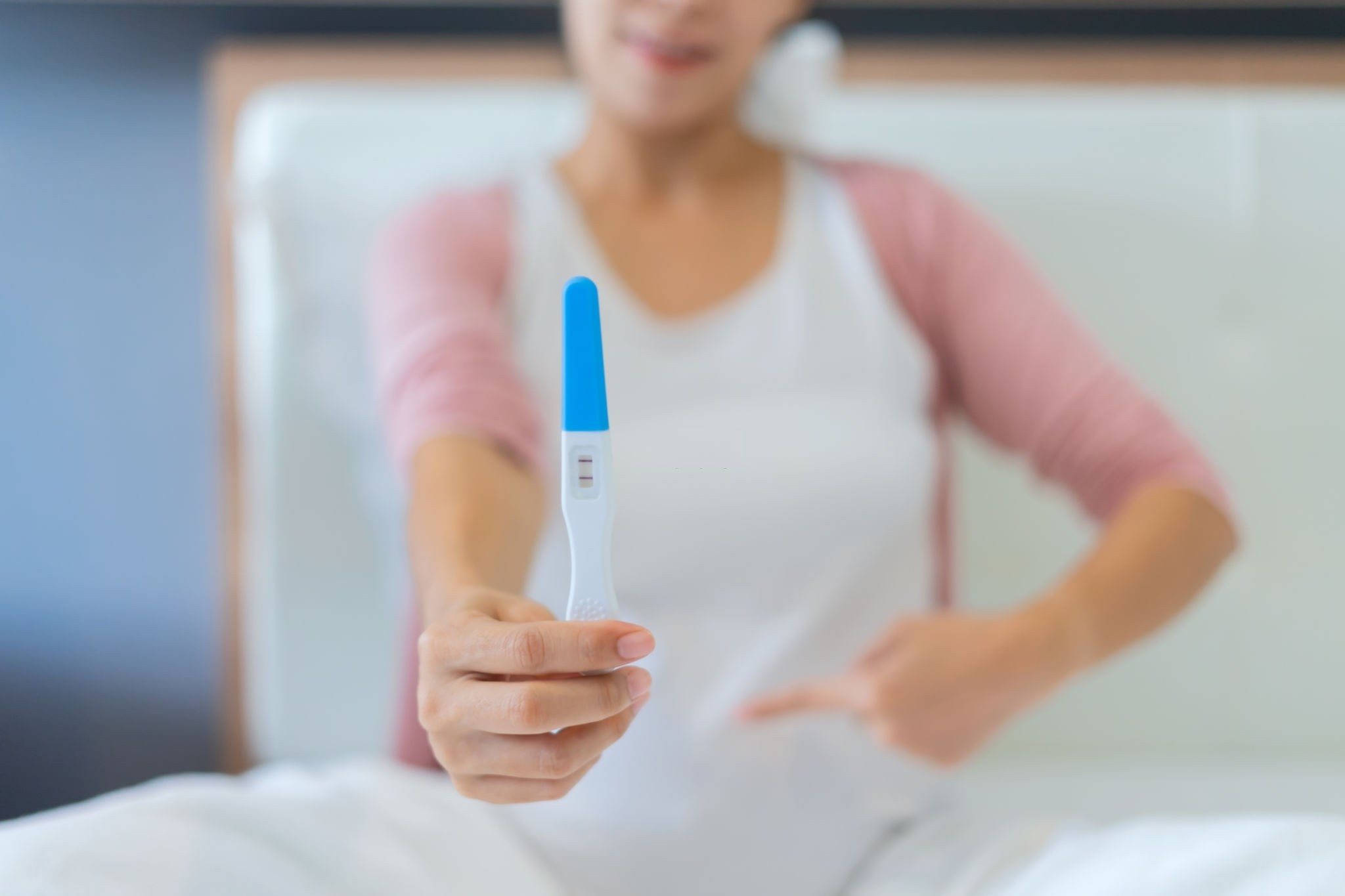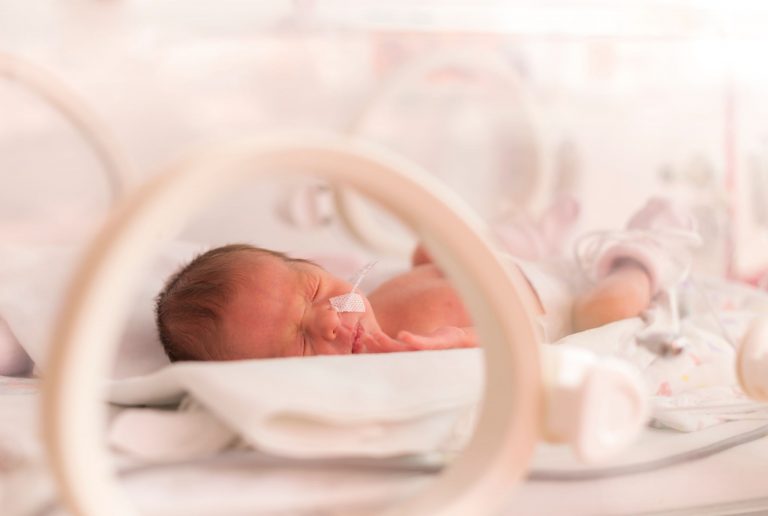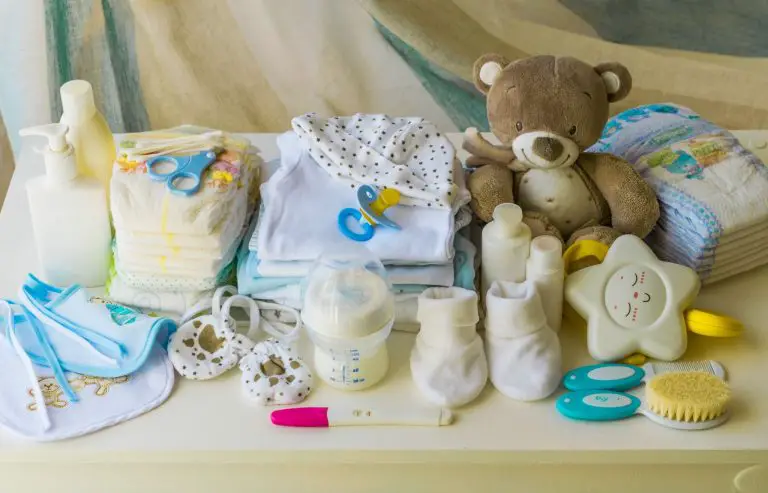
Are you wondering if you are pregnant? It can be incredibly confusing for a mom-to-be to tell if she’s pregnant, especially before she misses her period. When I was pregnant with my baby boy, I was intimidated by all the changes that happened to me and I couldn’t help wondering whether I was actually pregnant or just imagining everything.
It can be super hard to tell if you are pregnant or not, and the recommended way to find out is taking a pregnancy test. However, there are in fact plenty of early pregnancy signs you can count on.
So if you are trying for a baby, or simply want to make sure not to miss any early pregnancy sign, check out the following list of symptoms your body is trying to tell you that you are pregnant.
Remember that every woman is unique, and each will go on a totally different journey of pregnancy. Since these symptoms do not apply to everyone, it is good to note down all of the early pregnancy signs below to see if you are experiencing any of these symptoms.
20 Common Early Pregnancy Signs
1: Vaginal discharge and spotting
It is pretty common for a woman to experience vaginal discharge occasionally. However, when you are pregnant, your body has to prepare itself to accommodate the development of your baby inside you. Therefore, you will have to cope with profound changes throughout nine months of pregnancy.
One of the first changes of your body when you are pregnant is the increase in vaginal discharge. You are likely to experience thick or milky white discharge, which is usually odorless or mildly smelly. If you notice yellowish discharge with a heavy smell, it’s best to consult your doctor to find out if there is any infection.
The production of vaginal discharge is caused by changes in your hormones. You are likely to be subjected to this symptom throughout your pregnancy. Some women even experience vaginal bleeding during this period, but should you be concerned about bleeding?
Of course, it is pretty unnerving to encounter spotting or vaginal bleeding; it’s gross to see blood come out of your body, isn’t it? But do not panic just yet as it can be normal. First, you need to differentiate between bleeding and spotting.
Spotting refers to your vaginal discharge that is brown or pink, which some women see at the end of their periods. Spotting is one of the early pregnancy signs found in about 20-30% women, which can be attributed to implantation bleeding, vaginal infection or sexual intercourse or internal pelvic exams.
Light spotting is most of the time a normal sign that indicates healthy pregnancy, but bleeding, on the other hand, can be alarming. Unlike spotting, bleeding includes a higher amount of blood discharge. There are several causes of vaginal bleeding, and you are advised to see your doctor immediately.
2: Cramps
Another symptom you may experience apart from vaginal discharge is cramp. A lot of women experience menstrual cramps during their periods. But cramps as an early pregnancy sign is called implantation cramps.
Implantation cramps occur when the fertilized egg is attached to the lining of your uterus. So if you encounter cramps around a week after fertilization and ovulation together with other signs, chances are you are already pregnant!
To know more about what happens during implantation, check out the following video to see the development of the fetus from the first week to the ninth week!
3: Increased body temperature
Have you ever heard your pregnant friend’s complaint about feeling hot when it’s really cool out there? Is it true that pregnant women have higher temperatures than others?
Yes, it is true, and not because pregnant women are more sensitive to heat or they are just difficult, it is because when you are pregnant, your body temperature is simply higher than others.
When you are pregnant, your body experiences increased blood flow, which boosts your metabolism and thus creates more body heat. Your body heat can rise as high as 37.8 while the normal rate is 36.5 or 37 degrees.
4: Tender and sore breast
One of the more prominent signs of pregnancy is the change in your breasts. After conception, your breasts are likely to get tender and fuller. Breast tenderness is very common during early pregnancy, and some women even report sore or swollen breasts during the first weeks of pregnancy.
The two hormones in your body (estrogen and progesterone) are responsible for changes in your breasts. Your breasts will keep growing and undergoing preparation to milk your baby after birth.
You will notice changes in your nipples and areolas (dark circles your nipples) as well. You may feel ache and tingling sensations in your nipples while your areolas tend to become darker and bigger.
5: Skin rash during pregnancy
As if your body had not produced enough changes, your skin is also starting to look weirder, which can be a sign of pregnancy. You may experience itchy rash skin that can spread from your neck to your abdomen or other parts of your body.
Although the sudden occurrence of skin rash can indicate early pregnancy, you should watch out for other signs as well because the rash can point to other skin problems or one of the allergy symptoms.
6: Fatigue
When you are pregnant, your hormones start racing and causing a lot of changes that can seem abnormal. Fatigue as a result of hormone changes can be quite common during early pregnancy.
You used to be able to climb three or four stairs without any problem, but then suddenly you get really tired from walking or just carrying out daily chores. In your early days of pregnancy, you may feel like energy is being drained out of you, and tiredness is all you feel all day.
You are not alone as fatigue is a popular sign of pregnancy for a lot of women. It is also a considerably reliable pregnancy sign to look out for. Increased hormone levels also make you feel a lot more drowsy than usual.
7: Headache
In addition to feeling tired and exhausted, you are likely to experience a headache during early pregnancy as well. A headache is caused by the increase in hormone levels and blood volume in your body.
If you are experiencing these symptoms and suspecting that you may be pregnant, you should refrain from taking medication to treat your headache without consultation with your doctor. Your headache will fade away after the first trimester, together with some other unpleasant symptoms.
8: Back pain
Some women reported having back pain in their early days of pregnancy. So it can be likely for you to feel pain in your back if you are pregnant. It is not comfortable to sit and stand or move around with back pain, but a lot of rest and practice a good posture will help alleviate the pain.
If you experience severe pain, you should again check with your doctor immediately to make sure it’s not a serious health problem. Back pain during pregnancy happens because your body is loosening up to accommodate the growth and birth of your baby. And your back pain is a good way to practice for more discomfort later.
9: More frequent urination
Being pregnant will lead to increased blood flows in your body, which will make your kidney work harder, and you will end up going to the bathroom more often. Increased urination is, therefore, a good indicator that you are already pregnant and about to start one life-changing journey of your life.
Frequent urination will happen during early days of your pregnancy and your last trimester when your bladder is suppressed by the growing fetus. I won’t be able to forget how miserable I was during those days when I had to take multiple trips to the bathroom in only a few hours.
10: Short breath during pregnancy
Another unpleasant symptom associated with pregnancy is shortness of breath. Again, your increased level of hormones (progesterone) is to blame for short breath in your early days of pregnancy. Climbing stairs will be more difficult than it used to be, as you will have trouble finding your breath.
It takes time for your body to adjust to the new hormonal level, so give it time, and this symptom will soon go away when you are well into your pregnancy. But don’t be happy too soon, your shortness of breath will return in your third trimester as your uterus expands and suppresses other internal organs.
11: Nausea
Do you know that your pregnancy hormones can cause nausea, too? It is pretty common for a pregnant woman to experience nausea and even to vomit, therefore, it is one of the clearest signs indicating that you are pregnant.
Nausea, or often known as morning sickness, is the queasy feeling that resembles the feelings of being seasick, or car sick. It is estimated that 80% of pregnant women experience nausea and vomiting of pregnancy in the first 12 weeks.
I was lucky enough to not suffer from morning sickness, but I can imagine how hard it is to fight back your body’s tendency to throw up. However, do not try to take medication to suppress morning sickness unless prescribed by doctors.
12: Mood swings
Your pregnancy hormones are not only responsible for physical changes in your body but also responsible for your irrational behaviors. Influenced by the raging hormonal level in your body, you are likely to become unpredictably emotional and moody or easily irritated.
Mood swings are understandable among pregnant women due to fatigue, stress, headache or other symptoms brought on by pregnancy. Allow your body to adjust to the new hormonal level, and these mood swings will settle down.
13: Changes in your appetite
Another common early pregnancy sign is a sudden change in appetite. In the early days of pregnancy, some women start craving for certain kinds of food, even the types of food that they normally can’t stand.
In other words, if you are pregnant, it is completely normal for you to grow your appetite for some particular random food. Although it is tempting to indulge yourself in the food you crave, do not get carried away to the point of over-indulgence. After all, a healthy diet is utterly important for pregnant ladies.
Food aversion, on the other hand, is also very common. Food aversion usually comes with morning sickness, so be prepared to cope with queasiness and distaste for food. To compensate for nutrition deficit caused by severe food aversion, consider including some doctor-advised supplements in your diet.
14: Heightened sense of smell
Are you all of a sudden becoming ultra-sensitive to smell? Are you easily upset by the mildest smell? If yes, you can count on the possibility that you are probably pregnant.
The smell of the delicious dish of grilled pork suddenly irks you. Your stomach starts becoming uneasy, and you feel the urge to throw up. You can even smell the slight scent of the cleaning detergent, and it makes you feel sick. That’s when you know that you are probably pregnant.
Your heightened sense of smell is just one of the common signs of pregnancy, and this is also the reason why you start developing morning sickness. Most of the pregnant women find changes in their sense of smell, and for some women, the world becomes a horribly smelly place.
15: Lightheadedness and fainting
In spite of being less common and prominent, lightheadedness and fainting can be the message your body tries to convey to you: hey there, you are pregnant. Not all pregnant women experience lightheadedness, but if you do, it is usually not something to be concerned.
When you are pregnant, the blood flow to your fetus can slow down your blood flow while your hormones lower your blood pressure, which leads to dizziness and even fainting. Although it is not usually a clear pregnancy sign, you can consider the possibility of pregnancy if accompanied by other symptoms.
16: Nose bleeding
You may be surprised to learn that nosebleeds can be an early indicator of pregnancy. Your blood vessels during pregnancy tend to expand, and since your blood supply is boosted to cater for both you and the baby, your blood vessels will be under a lot of pressure and likely to rupture more easily.
Although nose bleeding is not a common pregnancy sign, look out for the occurrence of any other symptoms to make sure you won’t miss the probability of being pregnant.
17: Constipation
The next sign on our list is constipation. It is estimated that almost half of pregnant women have constipation at some point in their pregnancy. Your pregnancy hormones are again at fault with your constipation problem.
The hormones cause your bowels to relax, which leads to less and irregular bowel movements. The bad news is you will continue to experience constipation at further points in your pregnancy due to the expansion of your uterus and consumption of iron supplements.
To relieve yourself from the misery of being constipated, try adding foods that are rich in fiber and vitamins to your diet. Also, try to drink more water and select your supplements with careful consideration.
18: Weight gain
Weight gain is usually not associated with pregnancy but remains a sign that needs your attention right away because sudden weight gain may point to some undetected health risks.
However, if you experience weight gain with some of the pregnancy signs above, then it is pretty likely that you are expecting. It goes without saying that pregnancy will make you gain weight. You are nurturing life in your body, after all. Keep a close watch on your weight during pregnancy is crucial to your health.
19: Late periods
Now that you have noticed several symptoms above, but if you are still not sure if you are pregnant or not, then missing your periods will be the clearest and most trustworthy sign that you are pregnant.
A late period doesn’t guarantee pregnancy, but a late period accompanied by other symptoms such as morning sickness, lightheadedness or fatigue are good signs of pregnancy. It is the time when you should think about taking a pregnancy test to confirm your pregnancy.
20: Positive pregnancy test
Tada, the big moment has come! You can’t wait to take your pregnancy test, and words can’t describe the anxious feeling when you wait for the test result. A pregnancy test is arguably the most reliable way to tell if you are pregnant or not, and you can count on it to confirm your pregnancy.
When a fertilized egg has implanted in the uterus, your body will start producing the pregnancy hormones, which will be used to test whether you’re positive or negative.
A common way to test your pregnancy is to take a urine home pregnancy test that is widely available in most pharmacies. The appropriate time to take a pregnancy test to ensure its accuracy is around two weeks after ovulation and fertilization. If taken properly, the pregnancy test rarely produces false results.
Therefore, a positive pregnancy test is almost always the accurate sign of pregnancy. So when should I take a pregnancy test? Our best bet is when your period is late and when you experience some of the early pregnancy signs listed above.
Remember, not all women share the same symptoms, and don’t be stressed out if you haven’t noticed any of the signs mentioned above yet. Keep reading to find out more about frequently asked questions about pregnancy and different types of pregnancy tests.
Pregnancy is a thrilling experience, and there can be many unexpected things happening when you are expecting. In addition to the common pregnancy signs, there are plenty of other weird symptoms that may point to the possibility of getting pregnant.
Being pregnant can lead to unexpected and weird things that happen to you. And there’s no limit on how strange things can get when it comes to pregnancy. Be ready to embrace (or endure) new sudden changes.
Check out the following symptoms to ensure that you are not missing out on any hints of pregnancy:
List of Weird Pregnancy Symptoms You’ll Never Expect
1: Unusual vaginal discharge
Unusual vaginal discharge that is yellowish or sticky white can be a sign of pregnancy that you may not expect. If your vaginal discharge suddenly increases in volume and changes in color (pale yellow or thick white) with no stinky smell, you may want to add pregnancy to your list of the cause.
If your vaginal discharge is greenish with an awful smell, schedule an appointment with your ob-gyn to rule out any infection.
2: Leaking when sneezing or laughing
It can be truly embarrassing, but it’s true, ladies. When you are pregnant, your kidney will have to work harder due to increased blood flow while your bladder is under the pressure of the growing uterus. You will develop a constant need to pee, and when you laugh or sneeze, you leak.
Try to stick to places near the bathroom, and using an everyday sanitary pad may help, too. Do not try to hold back too much or cut down on the water you drink. Drinking more water is more beneficial than you think, especially when you are pregnant.
3: Bloating
One uncommon pregnancy sign you may experience is bloating. When you are pregnant, your hormones create a myriad of changes, and bloating is one of them. You are likely to get the gassy feeling in your stomach, followed by digestion problems such as constipation.
It can be very uncomfortable to endure the bloating and gassy feelings, but adjusting your diet can help a little. Avoiding bloating-induced foods or picking up some exercises for pregnant women can be helpful, too.
4: Stuffy nose
Suddenly you find it difficult to breathe with your stuffy nose, and you continue to sneeze or blow your nose all the time. And you know for sure that you do not have a cold or flu. So what’s wrong then?
You may not know it, but stuffy nose can be an early indicator of pregnancy. The increase in your hormones and blood flow result in the dryness and swelling of your mucous membranes, which leads to your stuffy nose and the tendency to blow your nose all the time.
To ease the pain and discomfort of a stuffy nose, try using saline drops to clear your nose. Also be aware of the cold of flu-like symptoms, which can be signs of colds or influenza.
5: Snoring
Snoring is surprisingly an indicator of pregnancy as a result of a stuffy nose. You can’t breathe through a congested nose anyway, right? When you sleep, you breathe through your mouth and consequently snore.
When I was 10 weeks into my pregnancy, I uncharacteristically started snoring like a chainsaw at night, and my husband ended up moving to the sofa frequently to sleep.
Again use saline drops to clear your nose. Do not try to live with a stuffy nose because it can lead to snoring, sore throats and eventually sickness.
6: Sweating
Although sweating can happen to anyone, excessive sweating can indicate early pregnancy. When you are pregnant, your blood flow increases and your body heat also rises as a result. Your metabolism is boosted to accommodate the development of your baby. Therefore, you will likely sweat more than usual.
Drink more water to compensate for your loss from sweating. Avoid heavy or thick clothes to give your body room to breathe.
7: Drooling
Now that you are already panicking about all the weird symptoms of pregnancy wait until you learn about this one. Drooling is again another unusual pregnancy sign that you may never expect.
It is still unclear why you drool when you are pregnant, but the flooding of pregnancy hormones in your body is likely responsible for your excessive drooling.
8: Even your skin won’t be the same
The pregnancy hormones inside your body are turning everything upside down for you, and your skin will be no exception. You can expect weird dark spots on your neck or your arms. Suddenly the skin of your armpits may grow unusually dark while a strange brown line is visible in your belly.
All of these changes are caused by extra melanin produced by your body and the pregnancy hormones. There’s not much you can do to prevent or get rid of these. The good news is most of them will go away after you give birth. So learning to live with them in peace for nine months is not a bad idea.
9: You won’t recognize your breasts anymore
As mentioned in the first part, your breasts are likely to experience big changes during pregnancy. That’s why changes in your breasts are good early indicators of pregnancy.
Your nipples will be more visible during pregnancy with tiny little bumps on them. Your areolas expand and get darker, due to the changes in hormones. Like everything else in pregnancy, your body is producing changes to prepare itself for birthing and nursing your baby.
Investing in a good bra that comfortably supports your new breasts is going to pay off. Comfort is all you need in the upcoming months of your pregnancy!
10: Hemorrhoids can become your new friend
Here is not a good sign to hear, but pregnant women are more prone to hemorrhoids than others. Constipation due to pregnancy can lead to hemorrhoids because it will make you sit longer on a toilet while your lower rectum is under increased pressure.
Besides, the pregnancy hormone (progesterone) further contributes to your constipation and causes swelling in the walls of your veins. That sounds sad, but there’s good news: hemorrhoids developed from pregnancy will likely to disappear postpartum, as long as you stay away from constipation.
11: Your feet are getting huge
Here comes another unpleasant change with your looks, and this time it’s your beautiful little feet. A lot of pregnant ladies (myself included) had to give up on their favorite shoes to switch to shoes that are at least one size bigger because of their suddenly bigger feet.
While it is a good excuse to buy new shoes, it can be a real nuisance to deal with. Fluid retention as a result of pregnancy is the culprit behind your swollen feet. But don’t worry, most women will have their old feet back not long after birth, but there are cases in which your feet won’t shrink back.
12: Bleeding gums
Hormonal changes are again to blame for this terrible symptom. During your pregnancy, you are likely to notice bleeding from your gums when you brush your teeth.
The increased blood flow in your pregnant body caused by pregnancy hormones is pushing more blood to your gums, which then become swollen and more sensitive. You should consider switching to a softer toothbrush to reduce pressure on your teeth and gums.
13: Your voice changes
This symptom is not very common and not something that can cause much discomfort or inconvenience in your life unless you are a singer or someone who uses your voice professionally.
You may wonder how being pregnant can have anything to do with your voice, but in fact, the two pregnancy hormones (estrogen and progesterone) aren’t as innocent as you think. They can cause swelling in your vocal cords, which makes you sound different from the normal you.
14: Runny nose
This is a similar symptom to the previous sign of stuffy nose. Not a lot of people know that a runny nose can be a pregnancy sign but having a runny nose can mean that you are expecting your baby.
The increase in your hormones makes the tissues inside of your nose thicken and swell which in turns lead to constant dripping or sneezing. Having a runny nose is miserable enough, not to mention other uneasy feelings caused by pregnancy. Luckily your runny nose will go away after a few weeks or postpartum.
15: Rapid heartbeat
One more thing that you may notice when you are pregnant is that your heartbeat increases to an alarming level. However, this should indicate no serious problem albeit the racing heartbeat.
When your blood flow is boosted as a result of pregnancy hormones, your heart needs to work harder than usual, and thus your heartbeat can be a lot faster (10 to 15 more beats per minute). However, abnormally high heartbeat together with weight loss and shaky hands can indicate some other serious health issues.
Remember to check with your doctor if you feel unsure to rule out other health problems.
16: The pain in the hip
Another less common pregnancy sign is your painful hip. Your hip normally won’t start hurting until you are in the second or third trimester. When your body prepares itself to give birth, it will loosen up and widen your hip to facilitate the birth of your baby.
There will be not much you can do to stop or prevent hip pain other than looking for special pregnancy pillows that support you or doing some customized exercises for pregnant women.
17: Metallic taste in your mouth
In the first part, we mentioned how pregnancy hormones could dramatically change your sense of smell, and it seems like your sense of taste is influenced as well.
Quite a few pregnant women complained about how they felt metallic in their mouth even though they apparently did not eat anything metal. This change of taste has its medical term – dysgeusia, which refers to the way you have a taste of metal in your mouth when you are pregnant.
When your pregnancy hormones start to settle down, this awful taste will be gone. In the meantime, give sour food or sugarless gums a try to somehow get rid of the metallic taste.
18: Absent-mindedness during pregnancy
Another symptom of pregnancy that is surprisingly little known is how your brain cell volume decreases by 4 percent. You may be shocked to find out that the hormonal changes can tamper with your brain cells, but they do.
That probably explains why some pregnant women can be more absent-minded and scatterbrained than they used to be. But the good news is your brain cells will come back to full volume a couple of months postpartum.
19: Your hair stops falling
During pregnancy, most women do not experience any hair loss at all. Your pregnancy hormones play a role here to make your hair stop falling altogether. Considering all other weird symptoms you may experience, this one isn’t bad at all.
Your hair will go back to its original state after birth, though. Some women even report crazy amounts of hair loss postpartum, but your hair tends to resume their normal cycle a few months after birth or even longer.
20: Clumsiness
With enormous changes in your pregnant body, you are likely to become clumsier than ever, which is completely understandable. Your feet will get swollen due to fluid retention. Your belly will get bigger while your hip gets wider to prepare for birth. How can you not become clumsy with these changes?
21: Vision changes during pregnancy
It’s hard to list which part of your body is NOT affected by pregnancy now because it seems like pregnancy hormones are causing unexpected changes to your whole body. And your eyes are no exception.
Vision changes during pregnancy turn out to be a common pregnancy sign. You are likely to experience blurry vision or less sharp vision during your whole pregnancy journey.
Vision changes also include dried or irritated eyes as well. Water retention caused by pregnancy along with other pregnancy-related factors makes your eyes drier than usual.
These changes in your vision are usually minor. You may notice yourself getting a bit more nearsighted but other than that; you will be fine. Try to lubricate your eyes more often if the dryness or irritation gets worse.
Now that we have walked you through a list of common and unexpected pregnancy signs, which can more or less confirm your pregnancy, hopefully you are feeling more prepared now. Nevertheless, one symptom alone cannot guarantee that you are pregnant.
While the above symptoms can clearly indicate that you are pregnant, beware of a condition called false pregnancy, in which a woman believes that she is pregnant, but in fact isn’t.
Below is further explanation of false pregnancy and how to recognize its symptoms.
What is a false pregnancy?
False pregnancy, or pseudocyesis, is the condition in which a woman thinks of herself as pregnant while there are symptoms that resemble pregnancy symptoms, which further strengthens her belief.
The symptoms of false pregnancy may last for months, and although it’s quite rare to come across a case of false pregnancy, it does happen to some women.
What are the symptoms of false pregnancy?
You will be astonished to learn that symptoms of false pregnancy are almost the same as the symptoms that a pregnant woman experience. They include nausea and morning sickness, late periods, tender and fuller breasts, cramps, back pain, even weight gain and sensations of fetus movement, etc.
The occurrence of these symptoms helps solidify the idea of being pregnant in some women, leading them and other people around them believe that they are pregnant. But it all turns out to be a psychological matter.
What causes false pregnancy?
For those who long for becoming mothers, they are prone to convincing themselves that they are pregnant, and they keep looking for any possible sign of pregnancy.
Their emotion and the increase hormones caused by their belief are making their brains think that they are pregnant. They start experiencing false pregnancy signs as a result of this process.
False pregnancy tests
The best way to confirm your pregnancy or in this case, your false pregnancy is to see a doctor. A blood test can be conducted, and it can produce very accurate results. If you still believe that you are pregnant even when the test proves otherwise, try seeking counseling or therapy for further treatment.
You can go for an ultrasound test if you experience bloating and think that you are pregnant. Usually, an ultrasound will show you whether there’s any sign of a baby or the forming of a baby inside your belly.
There are other health issues whose symptoms can mirror pregnancy symptoms. Therefore, it is best to check with your doctor to make sure you are not suffering from any health risk.
Is there any treatment for false pregnancy?
Since false pregnancy usually stems from the woman’s thoughts, it is advised to seek counseling or therapy to detect any psychological issue. Sometimes the symptoms of false pregnancy are, in fact, symptoms of other health issues so – medication may be prescribed accordingly.
Upon learning about the possibility of false pregnancy, you might get more and more confused. It can be extremely difficult to know if you are pregnant or falsely pregnant. Both symptoms are pretty similar, so how do you know for sure if you are pregnant?
What to do if you think you may be pregnant
To rule out any possibility of false pregnancy, try the following steps below to confirm whether you are pregnant or not:
- Check the date of your period: To determine if you may be pregnant or not, check your calendar to see how late your period is, or if you miss any period. The sign of any missed period can be a pregnancy sign.
- Schedule an appointment with a doctor: Expert advice is obviously the best way to clear your doubt and confirm your pregnancy. The doctor can even help rule out another health issue that can be misinterpreted as pregnancy.
- Take a pregnancy test: There are two types of pregnancy test available which are the blood test and the urine test.
As for the urine test, it is easy to take this test at home. The result can be quite accurate as long as you follow the directions carefully. Taking the test too soon or too late can make the test inaccurate.
As for the blood test, it can be done as prescribed by your doctor. The blood test is highly accurate but less convenient. In case you want to take an early step to reaffirm your pregnancy, then a blood test is the right option.
To clear out any remaining confusion you may have, check out the following frequently asked questions about pregnancy and the corresponding answers.
FAQs on pregnancy signs
Q. Will I experience these symptoms?
Q. I’m pregnant, but I have no symptoms. Should I be worried?
Q. Do I need to do anything differently if I have no pregnancy symptoms?
Q. I’m pregnant with twins. Will this affect the symptoms I get?
Q. Are there any pregnancy symptoms I should be concerned about?
Q. What are the earliest signs that I’m expecting?
Final thoughts
We hope that with all of the information above, now you can recognize certain pregnancy signs and how to handle them. Those symptoms may not be all of the pregnancy symptoms that you will experience, but they are the most common and reliable indicators of pregnancy.
It’s best to seek medical advice to make sure if you are pregnant or to rule out any other health issue. Pregnancy can be a totally new and life-changing experience, so the more prepared you are, the better.
We hope that you will have a safe journey of pregnancy and motherhood! Should you have any further questions, please leave your question below, and we will be more than happy to help you.

Hi, This is Emma Baster; As a mom, I spend my free time caring for my kids. I’ve read a lot on the Internet to improve my childcare skill and bring the best to my kids. Eruditemommy shares my knowledge and experience through helpful posts. I hope you enjoy them!







